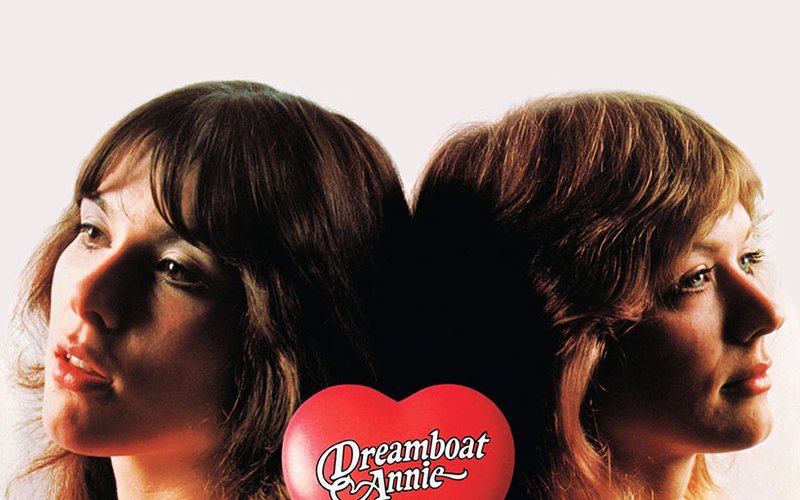
KEXP's Sound & Vision airs every Saturday morning from 7-9 AM PT, featuring interviews, artistry, commentary, insight, and conversation to that tell broader stories through music, and illustrate why music and art matter. You can also hear more stories in the new Sound & Vision Podcast. New episodes are out every Tuesday. Subscribe now.
Charles R. Cross calls Ann and Nancy Wilson the first true Seattle rock stars. “We can claim Jimi Hendrix because Jimi lived here for two thirds of his life,” says Cross. “But Heart, those two women are the first rock stars we produce in the Northwest.”
Cross is a Seattle based music journalist and the author of a biography of Heart titled, Kicking and Dreaming: A Story of Heart, Soul, and Rock and Roll. Cross notes that Heart had Top 40 albums every decade from 1970 to 2010. Though, when he thinks of classic Heart, he thinks of their 1975 album Dreamboat Annie.
KEXP DJ Marco Collins spoke with Cross about that album, it’s origin in Canada and the barriers the female fronted band broke. This is part of Sound & Vision’s occasion series called “Northwest Classics” – where we diving into the stories behind iconic albums from the region.
In the 70s in Seattle, this was a dead town. Nothing was happening. No bands were breaking through. And Vancouver was actually a bit more of a cosmopolitan town at that point. There were more bars, more nightclubs. People went out more. They did more stuff. And so, Heart could make more money playing the clubs of Vancouver, B.C. than they could playing here locally. So, they move there with the idea that they were going to get a break and they did. They became the most popular band in Vancouver, B.C. But at that point, let's be clear, they were a cover band and what they were popular for was covering Led Zeppelin songs. They would weave in a few originals, but they would play four sets a night in nightclubs of Vancouver.
Part of the reason the record even became a success in Canada of all places, was because there are Canadian content laws that forced radio stations in Canada to play a certain amount of Canadian artist. And there were enough Canadians on the record – the engineers, producers and other things – that this record qualified as a Canadian record and it got big in Canada. Their first starring gig ever was in Montreal, they open up and play in Montreal and they're like suddenly stars. They couldn't even believe it because they had not really heard their record on very many radio stations.
Ann moved to Vancouver, B.C., in part because the boyfriend she had at the time was a draft evader and he'd gone to Canada, like many Americans in that era, to get away from being drafted and going to Vietnam. So that song was certainly inspired by the boyfriend that she had at that time, but Ann had a deep, deep romanticism to everything she wrote. She was greatly influenced by the Beatles. She loved Paul Simon. She just loves everything romantic and velvety. And that's who she is as a person. And that's why we love her, she is deep into that stuff. And so “Magic Man” is essentially her ode to her boyfriend at the time, who now 40, 50 years later, still tells people he's the magic man.
Nancy wasn't initially in the band when they went to Vancouver, she was in college in Oregon and she essentially dropped out of college to join what, at that point, was her sister’s band. And the melody she brings into Heart makes that band. There is something about two sisters singing together or two brothers, the Everly Brothers, the Staples Singers, there is something about the way they connect those voices when they're similar, but not quite right there. That is one of the greatest things in rock and roll, is when you get two great siblings, sisters, singers together and you have that with Ann and Nancy.
They didn't do it to be role models. They did it because they always believed in themselves. If they would have known how impossible it was, they wouldn't have done it – the barriers that they went through and the crap they put up with being women in rock. But they did it because they believed in themselves and because they imagined this world that they were The Beatles.
Sound & Vision host Emily Fox spoke with festival organizers and artists about the new law, which limits non-compete agreements to three days.
KEXP's Marco Collins talks to music critic Charles Cross for a new series called "Northwest Classics."
Sound & Vision host Emily Fox caught up with Olsen to talk about her latest album and how her rising fame has tested her relationships.